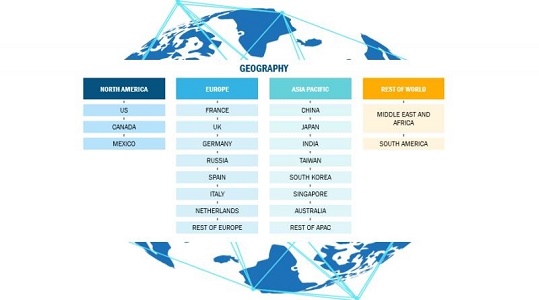Introduction
In today’s digital age, where user experience reigns supreme, web development company are constantly striving to create innovative and engaging websites. One of the key trends shaping the online landscape is dynamic personalization. This powerful tool allows businesses to tailor their websites to individual users, enhancing user satisfaction and engagement. In the vibrant city of Dubai, where technology and innovation converge, dynamic personalization is not just a trend but a necessity. In this article, we will explore the concept of dynamic personalization and its impact on user experiences on Dubai websites.
Understanding Dynamic Personalization
Dynamic personalization is the process of tailoring a website’s content, layout, and features to match the preferences and behavior of individual users. By leveraging data analytics, artificial intelligence, and machine learning algorithms, businesses can create a highly personalized online experience for their visitors. This approach goes beyond generic content, ensuring that users are presented with relevant information and services based on their interests, location, and past interactions with the website.
The Significance of Personalization in Dubai
Dubai, often referred to as the ‘City of the Future,’ is renowned for its luxury, innovation, and diverse cultural experiences. As a global business hub and a popular tourist destination, Dubai attracts a vast and varied audience. Personalization is crucial in this context because it allows businesses to cater to the unique needs and preferences of both residents and visitors.
Dubai websites, whether they belong to hospitality, retail, tourism, or other sectors, can significantly benefit from dynamic personalization. Tailoring the online experience to match the tastes of individuals can lead to increased customer satisfaction, higher conversion rates, and enhanced brand loyalty.
Benefits of Dynamic Personalization
-
Enhanced User Engagement: Personalized content and recommendations capture the user’s attention, leading to increased interaction with the website. Visitors are more likely to explore further and spend more time on a site that offers relevant information and products.
-
Improved Conversion Rates: By displaying products or services that align with the user’s interests and past behavior, businesses can boost conversion rates. Personalized recommendations create a sense of connection, prompting users to make a purchase or inquire about services.
-
Increased Customer Satisfaction: When users find what they are looking for effortlessly, it creates a positive impression. Personalized experiences show that the business values the user’s time and preferences, leading to higher satisfaction levels.
-
Data-Driven Insights: Dynamic personalization relies on data analysis. By collecting and analyzing user data, businesses gain valuable insights into customer behavior, preferences, and trends. This data can be used to refine marketing strategies and further enhance user experiences.
-
Brand Loyalty: When users feel understood and valued, they are more likely to become loyal customers. Personalized experiences create emotional connections with the brand, fostering long-term relationships.
Implementing Dynamic Personalization in Dubai Websites
-
User Data Collection: The first step in dynamic personalization is collecting relevant user data. This includes demographic information, browsing history, purchase behavior, and social media interactions. Dubai websites can use secure and ethical methods to gather this data, ensuring user privacy and compliance with data protection regulations.
-
Data Analysis and Segmentation: Advanced analytics tools and machine learning algorithms can process the collected data to identify patterns and segments. Businesses can categorize users based on their interests, location, purchasing power, and behavior, allowing for targeted personalization strategies.
-
Content Customization: Dubai websites can personalize content by displaying region-specific offers, language preferences, and culturally relevant images. For example, a tourism website can showcase tailored travel itineraries based on the user’s location and interests.
-
Product Recommendations: E-commerce websites in Dubai can implement recommendation engines that suggest products related to past purchases or items in the user’s wishlist. These recommendations can be refined based on real-time browsing behavior.
-
Interactive User Interfaces: Dynamic personalization is not limited to content; it extends to the website’s interface. Interactive elements such as chatbots, quizzes, and personalized dashboards enhance user engagement and provide customized assistance.
Challenges and Considerations
While dynamic personalization offers numerous benefits, businesses in Dubai must navigate certain challenges:
-
Data Security: Safeguarding user data is paramount. Dubai websites must invest in robust cybersecurity measures to protect sensitive customer information from cyber threats.
-
Ethical Use of Data: Businesses must adhere to ethical practices when collecting and using user data. Transparency and user consent are crucial in maintaining trust.
-
Technological Infrastructure: Implementing dynamic personalization requires advanced technological infrastructure and skilled professionals. Dubai businesses need to invest in the right tools and expertise to ensure seamless implementation.
Conclusion
In the competitive digital landscape of Dubai, dynamic personalization emerges as a game-changer for businesses aiming to deliver exceptional user experiences. By understanding the diverse needs of their audience and leveraging data-driven insights, Web Design Company can create personalized, engaging, and memorable interactions. As technology continues to evolve, embracing dynamic personalization will not only meet user expectations but also elevate Dubai’s status as a global leader in online innovation and customer satisfaction.





